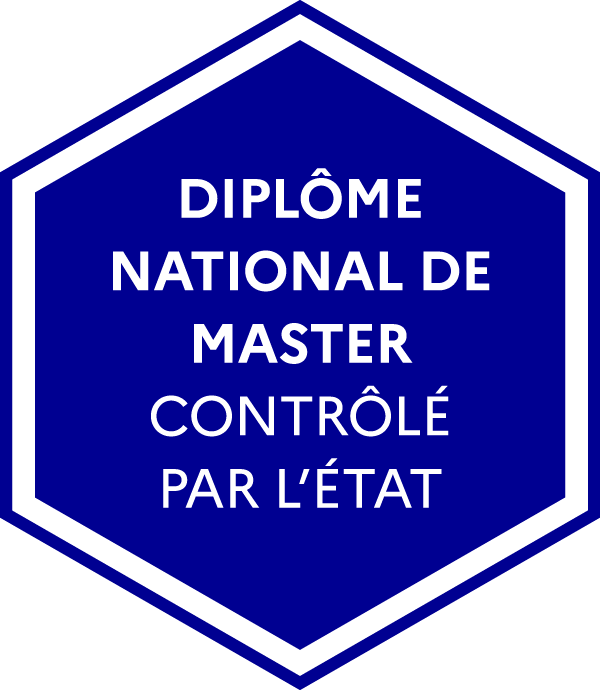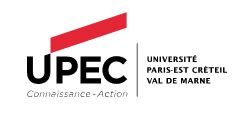Master's degree Molecular Physical Chemistry and Applications


Entry requirements
Master’s in Chemistry or Chemistry and Biology; chemical engineering school
Benefits of the program
The Molecular Physical Chemistry and Applications programme offers unique training in Paris and in France in general. Its specificity lies in the development and application of advanced characterisation methods in spectroscopy and modelling and their applications in atmospheric chemistry, astrophysics, catalysis, synthesis and diagnostics.
The complementarity of the course content and students’ dual skill set are an advantage. This duality is highly sought-after and appreciated.
Acquired skills
- Unique training in the sciences of matter, physics, chemistry, physical chemistry, the environment and sciences of the universe.
- Mastery of advanced techniques in spectroscopy and physical chemistry methods of analysis for characterising matter.
- Mastery of simulation and modelling methods for gas-phase, inter-phase and solid-state compounds for applications in catalysis, atmospheric and universe chemistry, pollution.
- Highlighting the relationship between structure, function and applications through the modelling and characterising of molecular compounds and their reactivity.
International
Students can carry out funded periods abroad (e.g. Erasmus) through the international relations departments of Université Gustave Eiffel and UPEC.
Capacities
30
Course venue
Your future career
This course offers a research-based programme for students who intend to study for a PhD and a professional programme for students who wish to enter the professional world at the end of M2.
This Master’s in Chemistry opens doors to careers as engineers, middle managers or researchers in the fields of physical-chemical methods and characterisation and the modelling of molecular systems in isolation or in a given environment. Students also acquire skills in environmental science and sciences of the universe and the atmosphere.
Professional integration
This second-year Master’s course also offers a professional programme. It has strong partnerships with companies and local authorities that continue to flourish through internships and the recruitment of graduates over the years. UGE is a founding member of the Atout Jeunes Universités (AJU) association, which includes other universities and major groups and promotes the skills and employability of students in leading companies.
Study objectives
The Molecular Physical Chemistry and Applications programme of the Chemistry Master’s aims to prepare students for careers in education or research in public or semi-public organisations (Universities, CNRS, CEA, etc.) and professional technical centres. It also offers opportunities for careers in the research and development departments of large and medium-sized companies with a focus on environmental enhancement and sustainable development (design offices). Graduates become engineers or researchers in the following fields:
* mastering key analysis and characterisation techniques
* providing a broad knowledge base on the structure of matter at microscopic and macroscopic scales.
* creating a link between the structure of the systems processed and their reactivity.
* processing the synthesis pathways of these molecular species.
* demonstrating the role of these species in the pollution of all environments: air, water, soil.
* notions of the business world.
* expertise in the most commonly used chemical numerical simulation software in laboratories and industry.
Major thematics of study
Spectroscopy and characterisation methods
Multi-scale modelling
Reactivity and chemical kinetics
Physical chemistry of natural diluted media
Advanced methods in analytical chemistry
Advanced experimental physical chemistry
Case studies
Communication
Work placement
Options
Two options are available: (i) French national label of theoretical chemistry and (ii) waste treatment and regulations
Semester 3
| Courses | ECTS | CM | TD | TP |
|---|---|---|---|---|
|
Spectroscopies et méthodes de caractérisation
This lecture treats the spectroscopy related to rotational and vibrational movements of molecules (IR, Raman and microwave spectroscopy). Electronic spectroscopy of atoms and molecules. Comprehension of principals and analytical methods for the study of light/matter interaction at high energy. | 6 | 27h | 18h | 15h |
|
Modélisation multi échelle
Introduction to methods of numerical simulation of matter, from molecules to the macroscopic scale. - Introduction to methods for the study of microscopic systems: initiation to methods of numerical calculations of isolated systems. - Molecular Dynamics: initiation to algorithms and modelling techniques with atomic resolution. - Homogenization techniques: homogenization and scale separation, problems associated to homogenization, homogenization in periodic media, statistical homogenization, self-coherent models and derived models. - Transfer of energy at the molecular scale: initiation to the theory of non-reactive collisions, calculation of cross sections, microscopic processes. | 6 | 30h | 30h | |
|
Réactivité et cinétique chimique
Complements of chemical kinetics: introduction to statistical mechanics, potential energy surfaces, transition state theory. Reactivity in organic chemistry: theory of frontier orbitals, experimental measurement of rate constants. Chemistry of radicals in the gas phase. | 3 | 12h | 10h | 8h |
|
Physico-chimie des milieux dilués naturels
Acquisition of profound knowledge concerning the physical chemistry and the functioning of diluted natural media: terrestrial atmosphere, planetary atmospheres, interstellar medium, astrochemistry, exobiology. - Structure, temperature and pressure distribution in a planetary atmosphere (including earth). Dynamics of an atmospheric system. Interaction of different microphysical phases. Radiative transfer. - Physical chemistry in astrophysical objects: interstellar medium, molecular clouds, circumstellar envelopes, young stellar objects, chemistry at very low temperature. | 3 | 21h | 9h | |
|
Méthodes avancés en chimie analytique
Acquisition of profound knowledge concerning analytical chemistry. | 3 | 21h | 9h | |
|
Physico-chimie expérimentale avancée
Comprehensive knowledge of advanced experimental physico-chemical methods. - Synchrotron radiation to explore matter. Functioning of a storage ring and SR facility. Examples of beamlines with advanced experimental end stations. - Laser techniques and spectroscopy using lasers. Action spectroscopy, time-resolution spectroscopy, different time-scales to study different physico-chemical phenomena, frequency comb spectroscopy. - Experimental simulation of natural physico-chemical systems: atmospheric simulation chambers, simulation of planetary atmospheres, study of astrophysical ices. - Observation of natural media by spectroscopic remote sensing. - In-situ measurements in natural media and artificial reactors. | 3 | 21h | 9h | |
|
Etude de cas
This module is a working group to treat real situation (either industriel or academic) with the supervision of qualified person (industrial or academic). | 3 | 10h | 20h | |
|
Communication
Acquire the basics of the search of documentation in science and in english, learn how to do a bibliographic search on a topic related to environment, learn the basics of writing a summary report and an oral presentation in English. | 3 | 10h | 20h |
Semester 4
| Courses | ECTS | CM | TD | TP |
|---|---|---|---|---|
|
Stage
Training of at least 4 months either in industry or laboratory. | 24 | |||
|
Label National de Chimie Théorique Option A
Treatment in depth of the methods in theoretical and computational chemistry. Applications to spectrosocpy and to reactivity. | 6 | 30h | 15h | |
|
Traitement des déchets et réglementations Option B
This course allows students to understand the various methods and applications for treating the water, soils and waistes. Environmental laws in France as well as the articulation between national and European level. . Eco comptability | 6 | 30h | 10h | 15h |
HOCHLAF Majdi
DAULT Marie-laure
Partners


